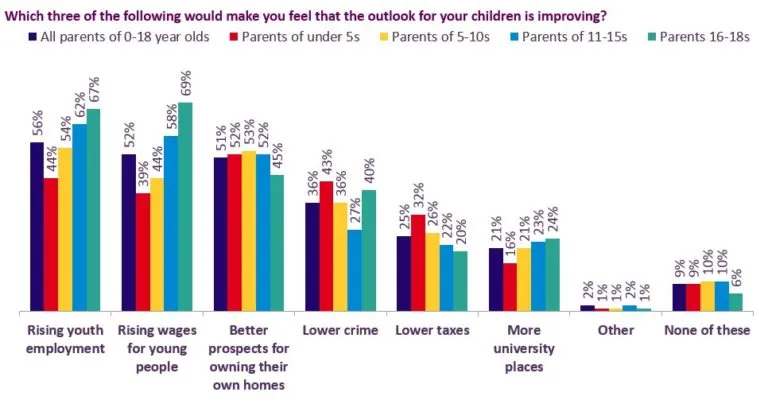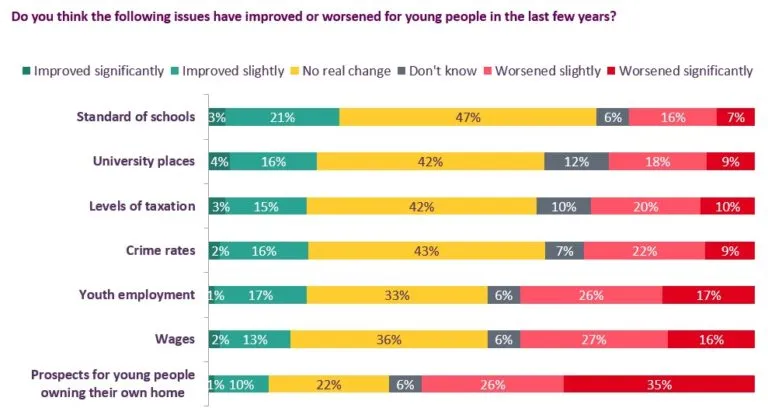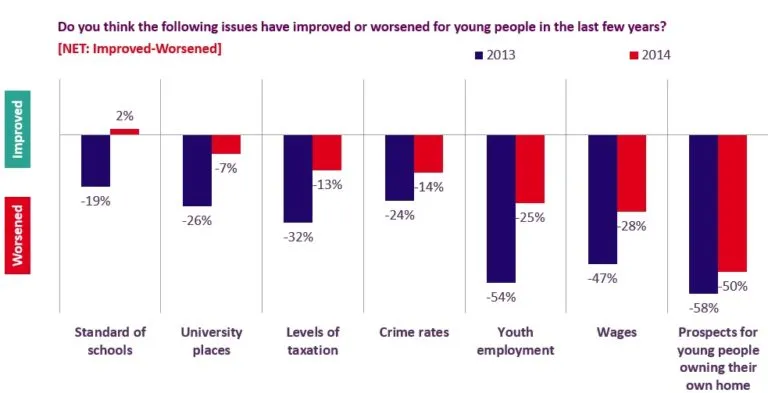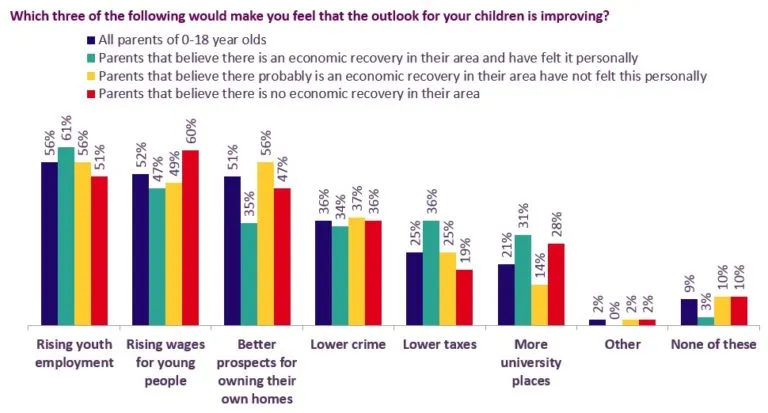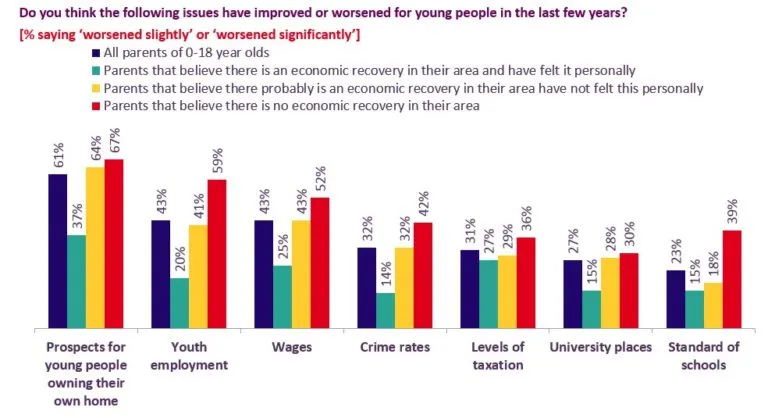The kids are not alright: parents more anxious about their children’s housing prospects than any other issue
Published: by Steve Akehurst
With May 7th fast approaching, the latest YouGov of election season shows housing is now a top 5 issue for voters – ahead of traditional election territory like education, Europe and tax.
And new research we have out today gives you an idea of why.
It shows that the shortage of homes in England now means young couples with children, on typical incomes, face 12 years of saving before they can afford to buy their first home. This affects a whole range of areas in every region of the country (18.6 years in Brighton and Hove, 17.8 years in Cornwall, Walsall 13.8 years, North Tyneside 12.6 years).
Working families being priced out is not the only important symptom of the housing shortage, of course – others include homelessness, rising rents, poor conditions, lengthening social housing waiting lists – but it is the one which is making housing a mainstream issue for the first time in a generation. The prospect of an entire generation being locked out of home ownership worries not only those directly affected, but their parents too, who are realising that this means less stability and prosperity for their kids.
Separate research we’re publishing today bears this out. It looks at the attitudes of parents with children aged 18 and under, and finds:
1. Home ownership plays an important part in parent’s views of their children’s future.
2. But they are gloomier about it than any other issue: overwhelmingly, they think ‘prospects for young people owning their own home’ is the key issue which has got worse.
3. W****hile their negativity about every other key issue has fallen significantly since 2013, it remains high for housing.
4. Finally, housing is a particular priority and anxiety among those parents who say they are not feeling the economic recovery.
We have made this argument time and time again on this blog, but this is why housing is now such a potentially potent issue electorally: it’s an issue which speaks to a broad range of voters and to themes they care strongly about (their children’s future, aspiration).
That’s why the opportunity for any party to take ownership of this issue in the election remains huge.
That said, this is certainly no free lunch in policy terms. It’s noticeable that the above figures show none of the piecemeal, short cut solutions of recent years – Help to Buy, starter homes, Right to Buy tweaks – have eased anxiety about housing. And that’s fundamentally because they haven’t worked, or won’t. That’s not to say this government is the only one prone to half-measures; the last one was too. The housing crisis is the failure of successive governments. But it does show any party wanting to get credit for solving symptoms of the housing shortage will need to show leadership to end the housing shortage: by building the homes, especially affordable homes, we desperately need. Voters increasingly recognise there is no alternative if their kids are to have somewhere to live, and as research we’re releasing next week will show, are increasingly receptive to it even in their own ‘back yard’.
But we’ll see if this opportunity to speak to the problem and solution is taken up in the coming months of the campaign. Certainly, despite vastly increased voter anxiety, housing has been conspicuous by its absence since the New Year.
It was alluded to as one of David Cameron’s top six themes, but we will have to wait to see if the policy attached to it has a chance of making inroads in to the problem. Meanwhile, it didn’t feature at all in Ed Miliband’s recent stump speech to The Fabians, despite the Lyons review and Miliband going big on it in his conference speech last year.
So far the debate has understandably seen the two main parties slug it out on traditional election territory: the NHS, the economy. But things have changed since 2010. Any political party which ignores the huge anxiety that’s bubbled up about housing between now and May is missing a trick.
